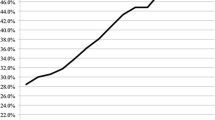Abstract
On 15 September 2008 the investment bank Lehman Brothers was not too big to fail and in the end filed for bankruptcy; the Dow Jones fell by about 500 points. What started as a banking crisis caused by toxic mortgagebacked assets and derivatives turned into a credit crunch as banks refused to lend money even to each other, soon reached the real economy and took its toll on public budgets. Four years on, the crisis continues with unemployment standing at about 10 per cent in EU27. Young people, particularly in the Southern European countries, are especially hard hit. According to EUROSTAT data from autumn 2012, nearly every fourth European under 25 years of age is unemployed (Ploetz, 2013). The fact that the economic crisis occurred is not entirely surprising given the relative detachment of finance assets from real value creation. Debt bubbles originated from the combination of low interest rates, rapidly rising household debt and wors-ening ratios of money borrowed for mortgages to down payments. Although real wages have stagnated in recent decades, people were, nonetheless, motivated to ‘borrow and consume as if their incomes were improving’ (Stiglitz, 2010: 2), in order to keep demand levels stable. However, as Robert Boyer warned as early as 2000, an equity-based regime depends on monetary policies that control financial bubbles, since the risk always exists that the diffusion of finance may push the economy towards structural instability (Boyer, 2000).
Access this chapter
Tax calculation will be finalised at checkout
Purchases are for personal use only
Preview
Unable to display preview. Download preview PDF.
Similar content being viewed by others
References
Alonso, L. E. and Martínez-Lucio, M. (eds) (2006) Employment Relations in a Changing Society: Assessing the Post-Fordist Paradigm, Basingstoke: Palgrave Macmillan.
Boyer, R. (2000) ‘Is a Finance-led Growth Regime a Viable Alternative to Fordism? A Preliminary Analysis’, Economy and Society 29 (1): 111–45.
Boyer, R. and Saillard, Y. (eds) (2002) Régulation Theory. The State of the Art, London: Taylor & Francis.
Durkheim, E. (1997) The Division of Labour in Society, New York: The Free Press.
Elchardus, M. (2011) ‘Diversity and Standardization: Concepts, Issues and Approaches’, in Koch, M., McMillan, L. and Peper, B. (eds) (2011) Diversity, Standardization and Social Transformation. Gender, Ethnicity and Inequality in Europe, Aldershot: Ashgate.
EuroMemorandum Group (2013) The Deepening Crisis in the European Union: The Need for a Fundamental Change, Bremen University. Available online at: http://www2.euromemorandum.eu/uploads/euromemorandum_2013.pdf.
Hall, P. and Soskice, D. (eds) (2001) Varieties of Capitalism. The Institutional Foundation of Comparative Advantage, Oxford: Oxford University Press.
Harvey, D. (2009) A Brief History of Neo-Liberalism, Oxford: Oxford University Press.
Jessop, B. (2002) The Future of the Capitalist Stare, Cambridge: Polity.
Kalleberg, A. L. (2000) ‘Nonstandard Employment Relations: Part-time, Temporary and Contract Work’, Annual Review of Sociology 26 (1): 341–65.
Koch, M. (2006) Roads to Post-Fordism. Labour Markets and Social Structures in Europe, Aldershot: Ashgate.
Koch, M., McMillan, L. and Peper, B. (2011) (eds) Diversity, Standardization and Social Transformation. Gender, Ethnicity and Inequality in Europe, Aldershot: Ashgate.
Laparra, M. (2006) La Construcción del empleo precario, Madrid: FOESSA/Cáritas.
Littlewood, P., Herkommer, S. and Koch, M. (2007) ‘Social Exclusion, the Underclass and Welfare. A Critical Analysis’, in Harrysson, L. and O’Brien, M. (ed) Social Welfare, Social Exclusion. A Life Course Frame, Lund: Värpinge Ord & Text. Available online at: http://www4.lu.se/images/Socialhogskolan/HarryssonOBrien070910WWW.pdf.
Lockwood, D. (1992) Solidarity and Schism. ‘The Problem of Disorder’ in Durkheimian and Marxist Sociology, Oxford: Oxford University Press.
Obinger, H. (2012) ‘Die Finanzkrise und die Zukunft des Wohlfahrtsstaates’, Leviathan 40 (3).
O’Connor, J. S., Orloff, A. S. and Shaver, S. (1999) States, Markets, Families: Gender, Liberalism and Social Policy in Australia, Canada, Great Britain and the United States, Cambridge: Cambridge University Press.
Paugam, S. (2000) Le Salarié de la précarité. Les nouvelles formes de l’integration professionelle, Paris: Presses Universitaires.
Ploetz, Y. (ed.) (2013) Jugendarmut. Beiträge zur Lage in Deutschland, Opladen, Berlin and Toronto: Verlag Barbara Budrich.
Stiglitz, J. (2010) Freefall. Free Markets and the Sinking of the Global Economy, London: Penguin Books.
Editor information
Editors and Affiliations
Copyright information
© 2013 Martin Fritz and Max Koch
About this chapter
Cite this chapter
Fritz, M., Koch, M. (2013). Introduction: Changing Employment Standards in a Crisis-Ridden Europe. In: Koch, M., Fritz, M. (eds) Non-Standard Employment in Europe. Work and Welfare in Europe. Palgrave Macmillan, London. https://doi.org/10.1057/9781137267160_1
Download citation
DOI: https://doi.org/10.1057/9781137267160_1
Publisher Name: Palgrave Macmillan, London
Print ISBN: 978-1-349-44331-4
Online ISBN: 978-1-137-26716-0
eBook Packages: Palgrave Social Sciences CollectionSocial Sciences (R0)




